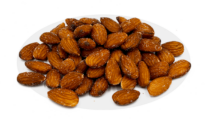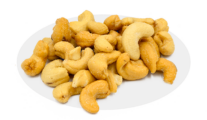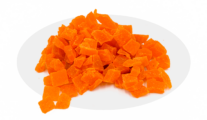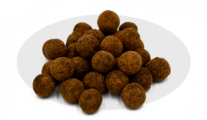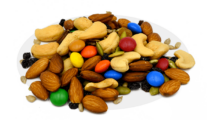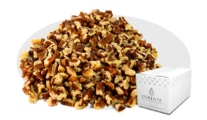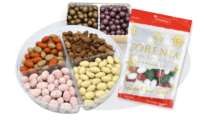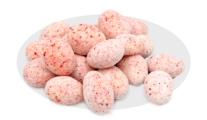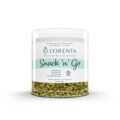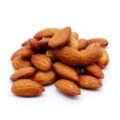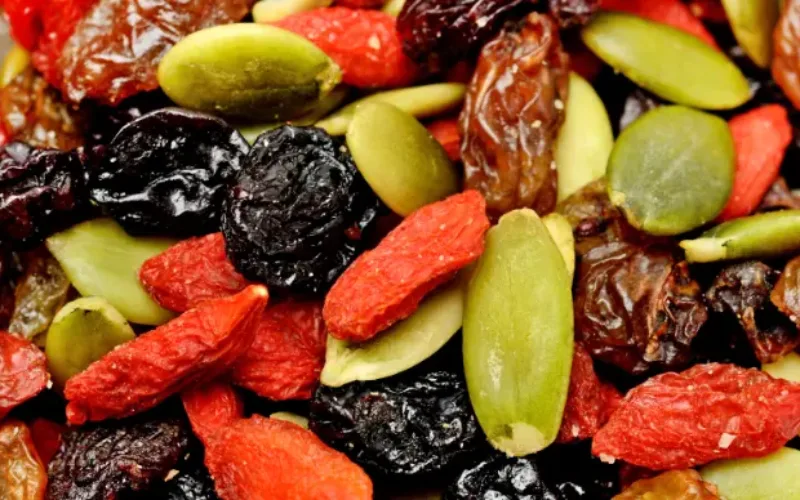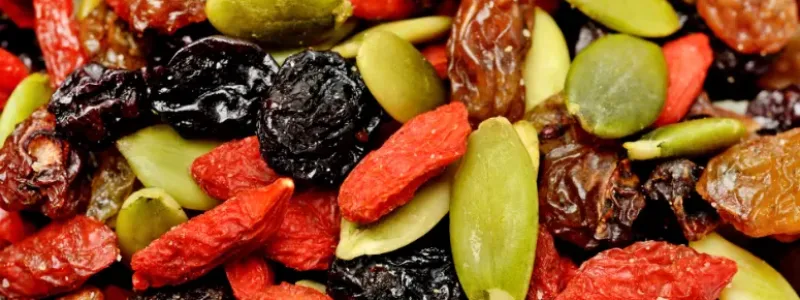Written By Sam Henselijn
Nutrition and Benefits of Pumpkin Seeds vs Almonds. In this article, we’ll be taking a closer look at two of the most popular easy snacks: almonds and pumpkin seeds. Nutrition and Benefits of Pumpkin Seeds vs. Almonds. We all know they’re both delicious and versatile ingredients in the kitchen. But which one is better for you? How do they compare nutritionally?
Almonds vs. Pumpkin Seeds
Here’s a quick overview of the nutritional facts for both almonds and pumpkin seeds. The amounts listed are per 100g.
ALMONDS NUTRITION FACTS
Calories 579kcal
Carbohydrates 22g
Dietary Fiber 13g
Total Fat 50g
Saturated Fat 3.8g
Sodium 1mg
Protein 21g
Iron 3.7mg
Magnesium 270mg
Potassium 733mg
Copper 1mg
Manganese 2.2mg
Zinc 3.1mg
ROASTED UNSALTED PUMPKIN SEEDS NUTRITION FACTS
Calories 446kcal
Carbohydrates 54g
Dietary Fiber 18g
Total Fat 19g
Saturated Fat 3.7g
Sodium 18mg
Protein 19g
Iron 3.3mg
Magnesium 262mg
Potassium 919mg
Copper 0.69mg
Manganese 0.5mg
Zinc 10mg
Are almonds good for you?
Almonds are some of the most popular tree nuts in the world.
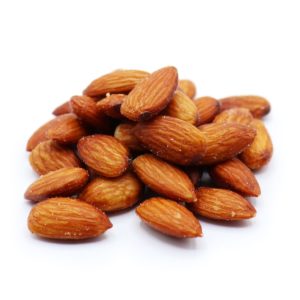
They are highly nutritious, rich in healthy fats, antioxidants, vitamins and minerals. They are also a fantastic source of antioxidants.
While these nuts are low in carbs, they are high in protein and fiber. What that does is increase fullness, which helps you eat fewer calories and possibly lose weight. In fact, there are numerous studies that support the hunger-fighting effects of almonds.
Almonds can improve blood cholesterol
There is plenty of scientific evidence that almonds can improve your cholesterol levels. Recent studies suggest their consumption may be related with reduced cholesterol levels of 3% to 25%. Results also determined a reduction of LDL cholesterol levels by 4% to 35%.
But almonds do more than simply reduce LDL levels in your blood. They also protect LDL from oxidation. This is a decisive step in the development of heart disease. The brown skin around almonds is rich in antioxidants. Over time, a continuous consumption of the nuts could lead to a reduced risk of heart disease.
Nutrition and Benefits of Pumpkin Seeds vs Almonds
Are pumpkin seeds good for you?
Pumpkin seeds are nutritional powerhouses. The little seeds have
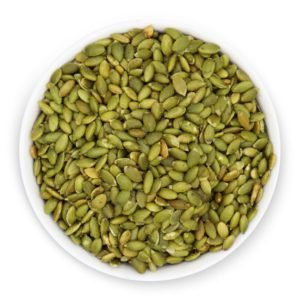
several proven benefits to your health. They are a good source of healthy fats, magnesium, and several other nutrients that support heart and bone health. Besides, they are also rich in polyunsaturated fatty acids, selenium, and beta carotene.
Can pumpkin seeds help manage diabetes?
Pumpkin seeds are rich in magnesium. In fact, so are almonds. Chronically low levels of the mineral can increase the risk of high blood pressure, heart disease, type 2 diabetes and osteoporosis. Furthermore, magnesium helps to lower blood sugar levels, which is essential for people with diabetes.
Nutrition and Benefits of Pumpkin Seeds vs. Almonds
Both almonds and pumpkin seeds pack a nutritional punch and are great additions to any diet! In sum:
-Almonds boast a substantial amount of micronutrients compared to other fat sources. They may even help lower blood pressure and improve cholesterol.
-The nuts are also an excellent source of fiber in the diet.
-Pumpkin seeds contain a multitude of Vitamins, including vitamin B1, vitamin B2, vitamin B3, vitamin B5, vitamin B6, vitamin B9, vitamin C, vitamin E and vitamin K.
-Pumpkin seeds have a lot of antioxidant potential due to the amount of Vitamin E and carotenoids. Antioxidants are very good for the health of our heart.
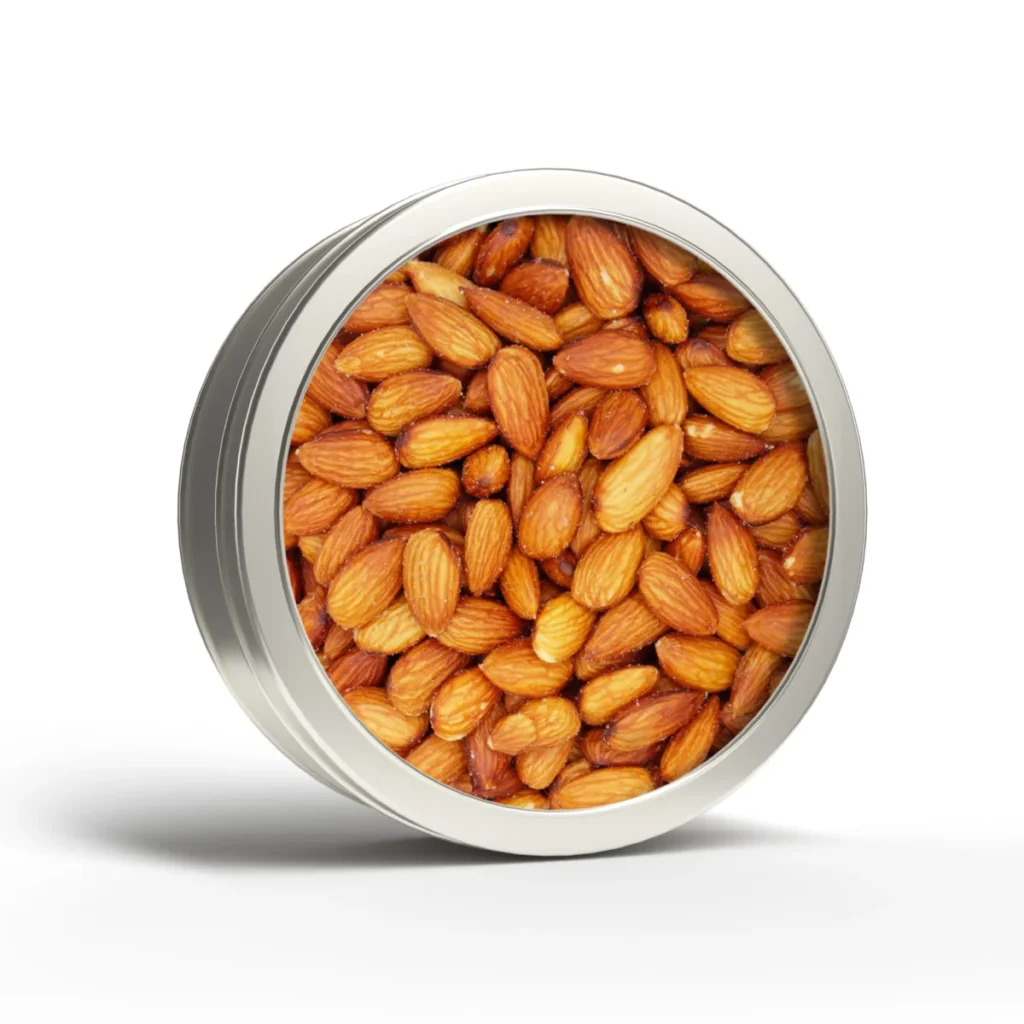
-The two snacks are very healthy, but still high in calories. Almonds have 30% more calories than pumpkin seeds – which have 446 kcal per 100 grams compared to 579 kcal in almonds. *Comparing macronutrient ratios, almonds are lighter in carbs, but have more fat. The amount protein in both is similar.
-Both are portable and can last a really long time, which makes them good on-the-go snacks.
Is it OK to eat pumpkin seeds everyday?
Yes, it is generally okay to eat pumpkin seeds every day as they are a nutrient-dense food with various health benefits. Pumpkin seeds are rich in essential nutrients like magnesium, zinc, iron, and healthy fats. They also provide protein and dietary fiber. However, as with any food, moderation is key. While pumpkin seeds are nutritious, consuming them in excessive amounts may contribute to an excess intake of calories or certain nutrients. As part of a balanced diet, incorporating a handful of pumpkin seeds daily can be a healthy and enjoyable practice. If you have specific dietary concerns or health conditions, it’s advisable to consult with a healthcare professional or a registered dietitian for personalized advice.
Which is healthier pumpkin seeds or cashews?
Both pumpkin seeds and cashews offer various health benefits and nutrients, but their nutritional profiles differ.
Pumpkin Seeds:
Rich in magnesium, iron, zinc, and phosphorus.
Good source of protein, dietary fiber, and healthy fats, including omega-3 fatty acids.
Provide antioxidants like carotenoids and vitamin E.
Cashews:
High in monounsaturated fats, promoting heart health. Good source of magnesium, iron, zinc, and phosphorus. Contain protein, dietary fiber, and essential vitamins like B6 and folate.
In terms of calorie content, cashews are slightly higher in calories and fat compared to pumpkin seeds. However, they also contain more monounsaturated fats, which are considered heart-healthy.
Both pumpkin seeds and cashews can be part of a healthy diet, and the choice between them may depend on individual preferences, dietary goals, and nutritional needs. If you’re looking to increase specific nutrients like magnesium or zinc, pumpkin seeds might be a better choice. Conversely, if you’re seeking monounsaturated fats, cashews could be a preferred option.
It’s essential to consider overall dietary variety and moderation, incorporating a mix of nuts and seeds to benefit from their diverse nutrient profiles. Consulting with a registered dietitian can help tailor your choices based on your specific health goals and requirements
Sam Henselijn Author’s Biography – Meet L’Orenta Nuts CEO
Copyright 2024 L’Orenta Nuts
L’Orenta Nuts proudly holds the SQF food safety certification, symbolizing our unwavering dedication to upholding the highest standards of food safety and quality. This certification guarantees that our products undergo rigorous scrutiny, ensuring transparency, traceability, and adherence to global food safety regulations for the utmost consumer confidence.
L’Orenta Nuts has the HACCP (Hazard Analysis and Critical Control Points) certification is a systematic approach to identifying, evaluating, and controlling food safety hazards. It ensures that food products are produced and handled in a manner that minimizes risks and complies with safety standards.
Our GMP (Good Manufacturing Practices) certification ensures that a manufacturing facility adheres to comprehensive quality and safety standards while producing pharmaceuticals, food, and other consumer goods, promoting consistency, quality, and compliance with regulatory requirements.
L’Orenta is an FDA-approved manufacturing facility and has met the rigorous standards set by the U.S. Food and Drug Administration. It demonstrates compliance with regulations, ensuring the production of safe and high-quality food products.


